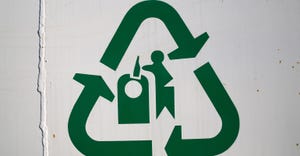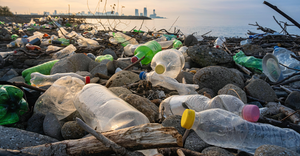December 7, 2021

ROCHESTER, N.Y. -- The REMADE Institute, a 132-member public-private partnership established by the U.S. Department of Energy (DOE) with an initial investment of $140 million, today announced $33.2 million in new technology research, selecting 23 new projects as part of the Institute's latest round of funding.
"The transition to a net-zero greenhouse gas economy will require an unprecedented reduction in the embodied energy and carbon emissions associated with foundational industrial materials in every critical sector—from healthcare, to agriculture, to transportation," said Kelly Speakes-Backman, Principal Deputy Assistant Secretary for Energy Efficiency and Renewable Energy, U.S. DOE. "By investing in technologies that improve our ability to re-use, recycle and remanufacture these materials, DOE is moving America toward a circular economy and reducing carbon emissions across the manufacturing sector."
REMADE CEO Nabil Nasr said the connection between industrial development and climate change is significant, as highlighted at the recent U.N. climate conference, COP26, in Glasgow, Scotland. According to the U.S. Department of Energy, manufacturing accounts for 25% of U.S. energy consumption at a cost of approximately $150 billion. Based on data from the U.S. Environmental Protection Agency, industry is the third-largest contributor to greenhouse gas emissions in the nation, after transportation and electricity, at 23%. Factor in the electricity consumed by the industrial sector, however, and that percentage increases to 30%, making industry the single largest contributor to greenhouse gas emissions in the nation.
This is why a circular approach to manufacturing - "make-use-reuse-remanufacture-recycle" – is so important, and why REMADE is dedicated to the adoption of a Circular Economy.
"A Circular Economy is critical," Nasr said. "If we don't reduce industrial energy consumption and industrial emissions, research shows we will only get a little more than halfway to net-zero by 2050, about 55% of the way. A Circular Economy approach to how we manufacture and use everyday products is needed to get us all the way to net-zero."
"REMADE and its partners are determined to reduce industry's energy consumption and emissions, and at the same time, increase U.S. manufacturing's competitiveness, increase the resiliency of the nation's supply chain, and create new clean economy jobs," Nasr added.
This latest round of investment, the Institute's fifth, is cost-shared between DOE's investment in REMADE and the funding recipients. The 23 R&D projects are expected to lead to technologies capable of:
Increasing recycled, or secondary, materials by as much as 8.9 million metrics tons per year
Saving up to 407 petajoules (PJ) of embodied energy per year — the equivalent of conserving 66.5 million barrels of oil per year
Decrease greenhouse gas emissions by as much as 24.1 million metric tons per year — eliminating the annual emissions of more than 5.2 million cars
Of the 23 projects, many involve new partners for REMADE, including Volvo, BorgWarner, BigBattery, Pratt & Whitney, Mercury Marine, Alfred University, Auburn University, Lehigh University and others. They join the Institute's existing partners, including industry innovators and academic researchers with Ford Motor Co., Caterpillar, John Deere, Michelin, Nike, MIT, RIT, Unilever, Yale University and many more.
REMADE Chief Technology Officer Magdi Azer said the Institute's research seeks to increase circularity for four energy-intensive material classes: metals, plastics/polymers, fibers, and electronic waste.
"REMADE's projects address multiple aspects of the Circular Economy, including reuse, remanufacturing, recovery and recycling," Azer said. "These latest R&D projects will, for example, explore better ways to repair aerospace components, develop an automated disassembly process for electric vehicle batteries, and provide quick and accurate estimates of the state-of-charge and state-of-health for lithium-ion batteries."
In 2021 alone, REMADE has funded or selected 45 projects for negotiation, representing $65.8 million in investment. Since the Institute's founding in 2017, REMADE has launched 84 projects, representing a total combined value of $85.6 million. Detailed information on all REMADE research projects can be found at www.remadeinstitute.org.
A sixth round of funding is expected to be announced next year.
About REMADE
Founded in 2017, REMADE is a 132-member public-private partnership established by the U.S. Department of Energy with an initial investment of $140 million. REMADE is the only national institute focused entirely on the development of innovative technologies to accelerate the U.S.'s transition to a Circular Economy. In partnership with industry, academia, and national laboratories, the REMADE Institute enables early-stage applied research and development that will create jobs, dramatically reduce embodied energy and greenhouse gas emissions, and increase the supply and use of recycled materials. The cumulative, five-year embodied energy savings, greenhouse gas reduction and increase in recycled materials use expected to result from this investment is approximately 1 Quad of energy, about 50 million metric tons of CO2equivalent greenhouse gas reduction, and more than a 40 million metric tons per year increase in the supply and use of recycled materials, respectively. For additional information about the REMADE Institute, visit www.remadeinstitute.org.
You May Also Like


